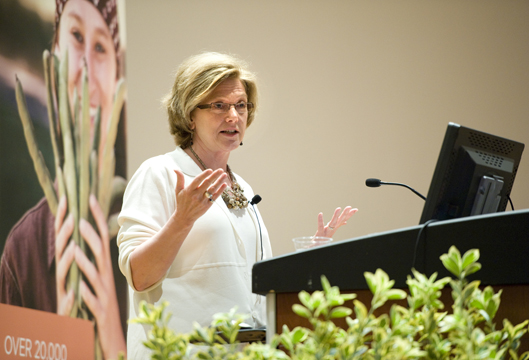If you remember that old Pete Seeger song and its lyrics, used in my title, you may even be curious about 1972, the year when our US Congress, with only 11 females among its 535 legislators in both House and Senate, approved by a wide margin the proposed Equal Rights Amendment. Only 32 members of both House and Senate voted against the ERA.
Mind you, women had only been urging a male majority to pass an ERA soon after women finally won the vote in 1920. After a couple of drafts, ERA author and activist Alice Paul first proposed this simple wording to Congress in 1943: “Equality of rights under the law shall not be denied or abridged by the United States or by any state on account of sex.”
Polls in the 70s showed that most Americans thought this the right thing to do. But changing the US Constitution is no simple matter, settled by a single vote. Its amendments require three-quarters of all state legislatures to ratify the measure also. Congress set a seven-year deadline for this, later extended to 1982. Still, when that second deadline passed, only 35 states, including Vermont, had ratified the ERA. Women still needed three more, to make it to the required 38.
Why on earth would anyone fail to vote for such a fair and simple measure?
A 2016 poll the ERA Coalition Fund for Women’s Equality found that 80 percent of respondents assumed that the ERA was already in place in the Constitution. But the times, post-1972, they had gotten complicated.
Some feminist labor organizers worried that protections they’d won for pregnant women and working mothers would be contested on the grounds of the new amendment; the ERA was not needed in their view. Other women, rumored to be burning their bras, in the eyes of some seemed dangerously pushy: in 1970, for instance, women declared Equality Day, and marched to the Statue of Liberty to hurl a flag from her heights—eegads. Importantly by then, Christian fundamentalists had also become newly political, joined with Roman Catholics in an unholy alliance to keep women pregnant and secondary in God’s supposed “order of the sexes.”
Women’s equality, however, had gotten out of the genie bottle. Though the national ERA missed its deadline, by 1984 Madeleine Kunin had become the first female governor of Vermont, and more women were running for, and being elected to, state and national offices. As women had learned from the suffrage vote, a state strategy also could work. In 1986, an ERA measure for the Vermont Constitution was passed by Vermont’s state legislature, but with an added requirement for ratification by popular referendum.
That same year, Vermont Woman observed its first anniversary of publication. We had a front-row seat to a year’s worth of the wack-a-doo politics that now dominate the country. Phyllis Schlafley of the Eagle Forum came to Burlington to challenge women’s legal right to an abortion and, while she was at it, opposed the ERA: Who knew what horrors would be set loose if all women were as free as Phyllis apparently was, running a national organization, and flying around the country, giving speeches?
Purple pamphlets everywhere raised questions about the terror of unisex bathrooms. If the ERA were passed, homosexuals would teach in our schools, and even get married—perdition and confusion would prevail, and God would let loose AIDs as righteous punishment. Vermont’s measure went down in defeat—narrowly I’m relieved to say, 49 to 51 percent—but still marking a distressing signpost for the nation.
Sturdy and persistent Vermont legislators brought ERA issues back again by another name for a fuller airing to ensure that gender inclusive language be used in Vermont’s Constitution. That measure passed in 1994. Many other states have either passed de-facto ERA measures or a state ERA. And now in the era of Trump and Pence in a US White House, pink-hatted wonderfully pushy women are marching out in the streets again—and the national ERA has reared her head upright. She remains very much alive!
In a “failing New York Times” editorial in April, that gray lady’s entire editorial board gave continued ERA efforts a thumbs-up, saying, “Enshrining women’s rights in the Constitution matters. Doing so now, during this presidency, would be particularly fitting.” Last year, Nevada ignored the imposed deadline and ratified the ERA. Now the state of Illinois just has too, on May 30, 2018.
Only one more state is needed to ratify it, and Virginia, Florida and Utah are all considered good bets. As for that imposed deadline, will it stand? The 27th Constitutional Amendment that James Madison first proposed over 200 years ago about Congressional pay was just passed—so why did women’s amendment get a deadline in the first place?
Women stand ready to challenge its legality. And then there are the five states—Nebraska, Tennessee, Idaho, Kentucky and South Dakota—that have tried to rescind their ratification. Can they do that? That will have to be contested in court, too.
But that backwards move by backwards states only underlines the importance of whaSupreme Court Justice Ruth Bader Ginsberg said to the National Press Club in 2014: “…[L]egislation can be repealed, it can be altered. So I would like my granddaughters, when they pick up the Constitution, to see that notion—that women and men are persons of equal stature—I’d like them to see that is a basic principle of our society.”
We need Constitutional assurances in a time when Donald Trump is expected to seat more judges in the third branch of government, and when the nation has indulged in an overly bully pulpit. The ERA won in Illinois—but not with the wide agreement we saw in our Congress in the 70s. The Illinois final vote in both houses was narrow, 115 votes in favor of the measure, 57 against. That’s not quite as close as Vermont’s ERA defeat in 1986, but fear still reigns in our divided country, primed by deliberate fools.It was when I was remembering the happy vote of 1972, and saw those numbers of Illinois that Pete Seeger’s song popped into my head. His plaintive chords originally hit home as the Vietnam war went on and on, and the Pentagon Papers told us how five male presidents of both parties had kept on lying, each wanting to appear stronger than all the others: “Where have All the Good Men Gone, Long Time Passing? When Will They Ever Learn? When Will They Ehhhhver Learn?”
—From Vermont Woman, Summer 2018. Rickey Gard Diamond was founding editor of Vermont Woman. Her latest book, Screwnomics: How the Economy Works Against Women and Real Ways to Make Lasting Change has just been released by She Writes Press; you can contact her at www.screwnomics.org.







